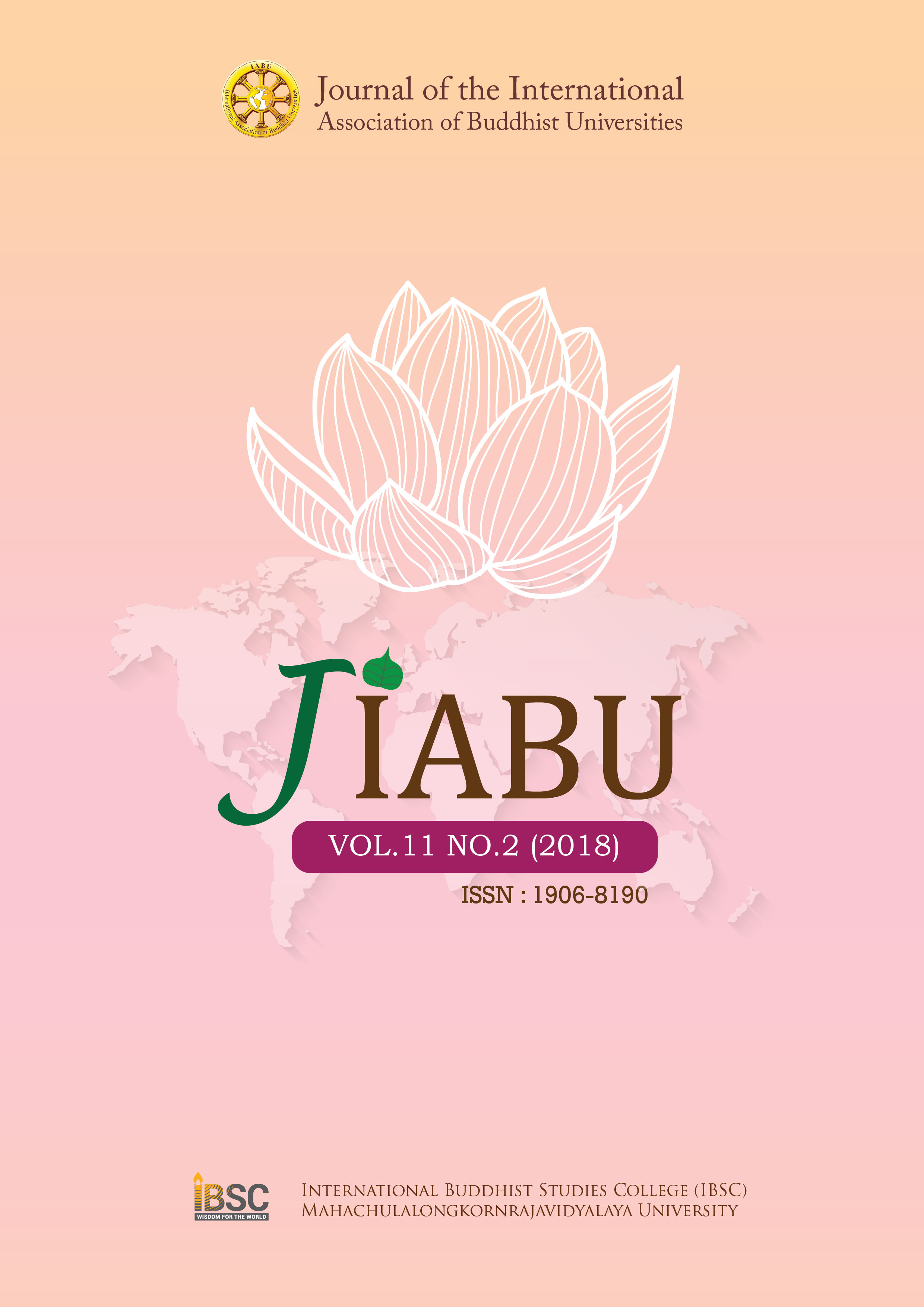The Problem of Incomprehensibility of Vipāka: A Solution
Main Article Content
Abstract
Kammavipāka or vipāka is the effect of kamma. It is unthinkable or incomprehensible (acinteyya) because the precise working out of the effects of kamma is
imponderable or incomprehensible. Moreover, it cannot be shown where it is when it
hasn’t yet been produced and another related problem is that kammic effects are usually
referred to nāmarūpa (corporeality and mentality) but what is the kammic effect which
hasn’t yet been produced but cannot be known where it is. However, the problem of the
incomprehensibility of vipāka can be partly solved by explaining its nature and
classification, i.e. there are 2 main kinds of vipāka, immediate and subsequent, of which
the latter is further classified into primary and secondary vipāka. It is this primary vipāka
that plays an important role in the working out of the vipāka of kamma, i.e. the secondary
vipāka in the future. This primary vipāka is like a kammic seed, i.e. potential energy or
unseen power that cannot be shown where it is and will bring about the secondary vipāka,
i.e. body and mind including experience or happiness and unhappiness in the future in this
life or next life.
Article Details
Views and opinions expressed in the articles published by The Journal of the International Association of Buddhist Universities (JIABU), are of responsibility by such authors but not the editors and do not necessarily reflect those of the editors.
References
Milindapañha Atthakathā. 1998. Bangkok: Mahachulalongkornrajvidyalaya.
Tipi aka (Siamrat Edition). 1955. Bangkok: Mahamakuta Buddhist University Press.
Phra Brahmagunabhorn (P.A. Payutto). 2012. Buddhadhamma. Bangkok: Phalidham.
Buswell Jr., Robert E. and Lopez Jr., Donald S. 2014. The Princeton Dictionary of
Buddhism. Princeton: Princeton University Press.
Kyabgon, Traleg. 2014. The Essence of Buddhism: An Introduction to Its Philosophy and
Practice. Boston: Shambhala.
Lopez Jr., Donald S. 2001. The Story of Buddhism: a Concise Guide to Its History and
Teachings. New York: HarperOne.
Puligandla, R. 1975. Fundamentals of Indian Philosophy. New York: Abingdon Press.


